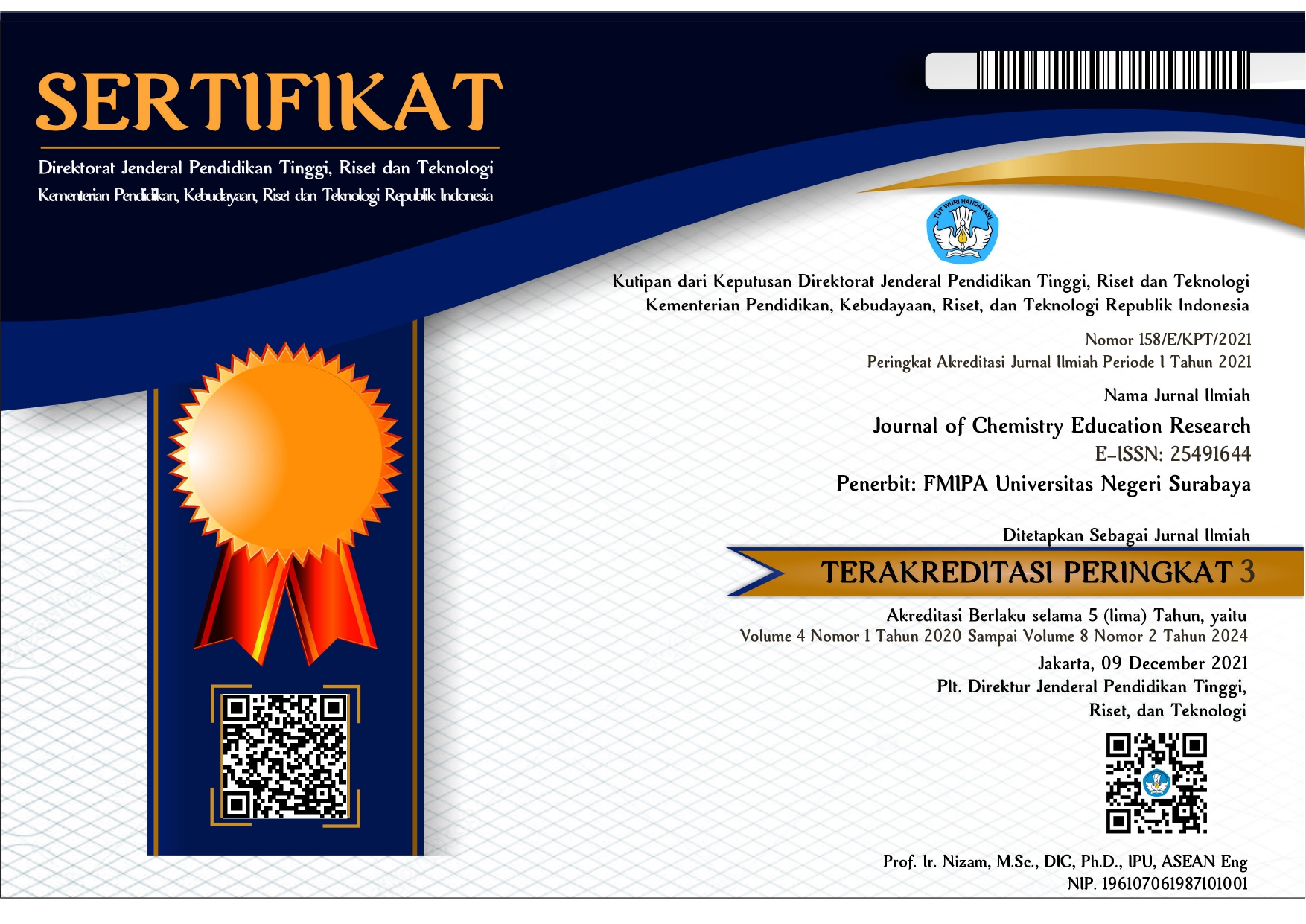SOME MISTAKE WHICH OFTEN HAPPENED IN SIMULATION OF INDUCTIVE MODELS IMPLEMENTING
DOI:
https://doi.org/10.26740/jcer.v1n1.p22-26Keywords:
inductive model, mistake in inductive model implementingAbstract
Not forever what written in theory accepted student correctly. Observing is important to check simulation implementing of inductive model by student of Chemistry Education Program of Chemical Department of FMIPA Unesa after they were studying inductive model theory. Observing was conducted since even semester 2012 / 2013 untill even semester 2015 / 2016. Result of observing show there are some mistake which often happened in simulation implementing of inductive model. First mistake is deem that in open-ended phase teacher is obliged to attend the non example of concept, though the non example of concept is not obliged to be attended teacher. Second mistake is teacher teach two concept at the same time in a series of inductive model sintak, though ought to a series of inductive model sintak to teach one concept. Third mistake is example of concept and non example of concept in open-ended is always made more simple than convergent phase so that student respon too varying and it is very difficulty by teacher in convergent phase. Fourth mistake is concept which will reach is not well defined so directingstudent to reach concept is difficulty. Fifth mistake is practice problem in application phase less regarding how is student get concept or not representation of conception which have been reached.References
[1] Tim. (2012). Buku Pedoman Mahasiswa Unesa. Syusuurabaya: Unesa Press.
[2] Enger, Sandra K dan Yager, Robert E. (2009). Assessing Student Understanding in Science. United State: Corwin A SAGE Company
[3] Earl, Kerry dan Giles David. (2011). An-other look at Assessment: Assessment in Learning. New Zealand Journal of TeacherWork, Vol. 8, Issue 1.
[4] Eggen, Paul D dan Kauchak, Donald P. (1995). Strategies for Teacher. United State of America: Allyn and Bacon.
[5] Soemiadji. (1998). Metode Induktif. Surabaya: Unesa Press.
[6] Widoko. (2001). Model Pembelajaran Konsep. Surabaya: Unesa Press
Downloads
Published
2017-11-26
Issue
Section
Articles
 Abstract views: 300
,
Abstract views: 300
, PDF Downloads: 671
PDF Downloads: 671



